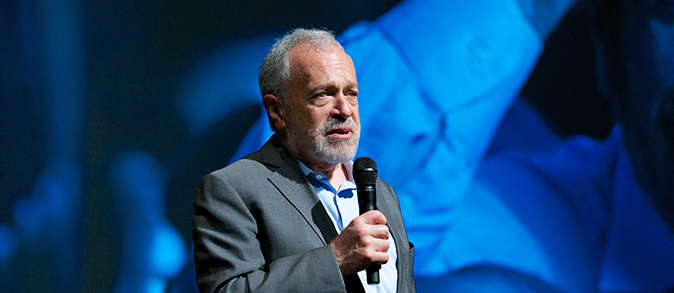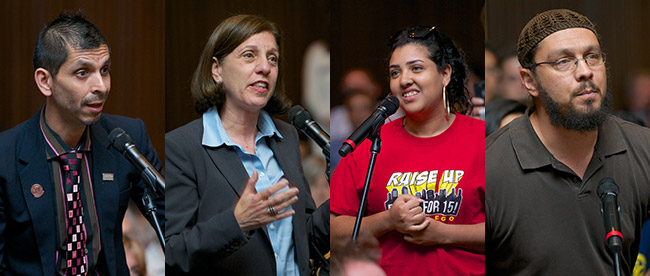“One of the biggest issues facing our country today is that people don’t talk anymore.”
Robert Reich, former U.S. Secretary of Labor, shared these thoughts and more as he emphasized the importance of civic engagement to hundreds of regional San Diego community leaders and nonprofit organizations on April 13 at the Museum of Contemporary Art.
The event was sponsored by The San Diego Foundation Center for Civic Engagement and the UC San Diego/Blum Cross-Border Initiative, two institutions committed to bringing together local leaders to address issues San Diegans care about to create a vibrant and cohesive San Diego region.
In attendance were some of San Diego’s most active leaders at the center of local change. From UC San Diego Chancellor Pradeep Khosla and UC Regent Richard Blum, to leaders from Teach for America San Diego and San Diego Workforce Partnership, the event was as much about comments from participating organizations as it was about Reich himself.
See photos from the event here.
Through Reich’s film, Inequality for All, and a Q&A with the audience, leaders focused on the issue of income equality and discussed compelling national statistics illustrating challenges and opportunities about how the issue impacts our quality of life.
The Q&A forum was filled with community leaders voicing diverse opinions, questioning how the film relates to San Diego, and asking Reich what could be done as next steps. It was amid this serious but engaging debate that Reich underscored the value of openness and engagement.
“This is what we need. By participating and engaging in these sometimes difficult conversations you are already doing good work,” Reich said.
[Tweet “By participating… in these difficult conversations you are already doing good work #ReichSanDiego”]
Income Equality and the American Economy
Reich also highlighted the complexities of income equality and the American economy, and stated there is no one solution, or even one group or event to blame for the position we are in now because income inequality has roots in economic and policy changes that began over 30 years ago.
However, he reassured the audience that despite economic struggles, the outlook is positive because “history is on the side of positive social change.”





